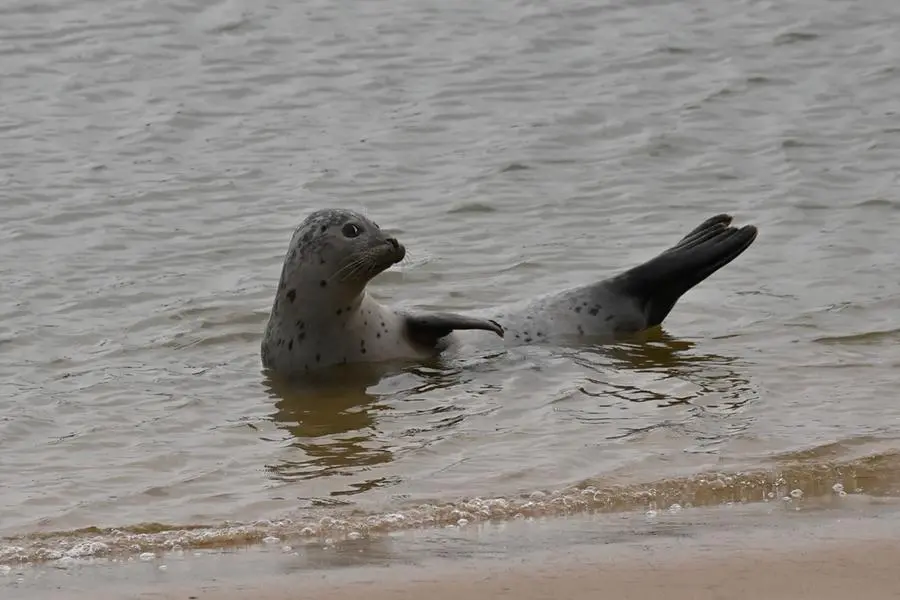PHOTO
Namibia's annual sea hunt officially starts from Saturday and will see 86,000 Cape fur seals slaughtered despite a decrease in demand for pups and mounting opposition from conservationists.
The seals are hunted for their prized fur for a once thriving global trade.
"The season opens on Saturday and those who have a quota can go ahead," Fisheries Minister Derek Klazen told AFP on Friday.
However, Klazen said fewer pups had been harvested in recent years due to drop in demand.
Previously sold to the fur trade in Europe, market demand has drastically decreased following a 2009 EU ban on seal imports.
China is now the main market for Namibia's cull.
Seal culling has long been contentious in Namibia, with animal rights groups vehemently opposing the practice as cruel.
The southern Africa country, home to an estimated 1.6 million seals, this month issued fresh hunting permits for 80,000 pups and 6,000 bulls for the 2023 "fishing season".
Naude Dreyer, co-founder of Ocean Conservation Namibia Environmental Trust, was dismayed at the government's move to issue hunting quotas this year despite the diminishing demand, especially for pups.
"Such a decision should be made on demand and based on scientific research," he told AFP.
He contends that no proper research has been done, and that the hunt "could be upsetting a whole ecosystem by taking out the bulls like that".
Government justifies the cull saying the seal population poses a threat to the fishing industry, a crucial sector for the Namibian economy.
Earlier this year parliament started debating proposals for an increase of seal culling quotas after reports the mammals were consuming excessive amounts of fish that could otherwise be used for human consumption.
Namibia is the only country in the southern hemisphere that commercially hunts seals, according to Seal Alert SA.
Seal hunting also takes place in Canada, Finland, Greenland, Iceland, Norway and Sweden, Finland and Greenland.




















